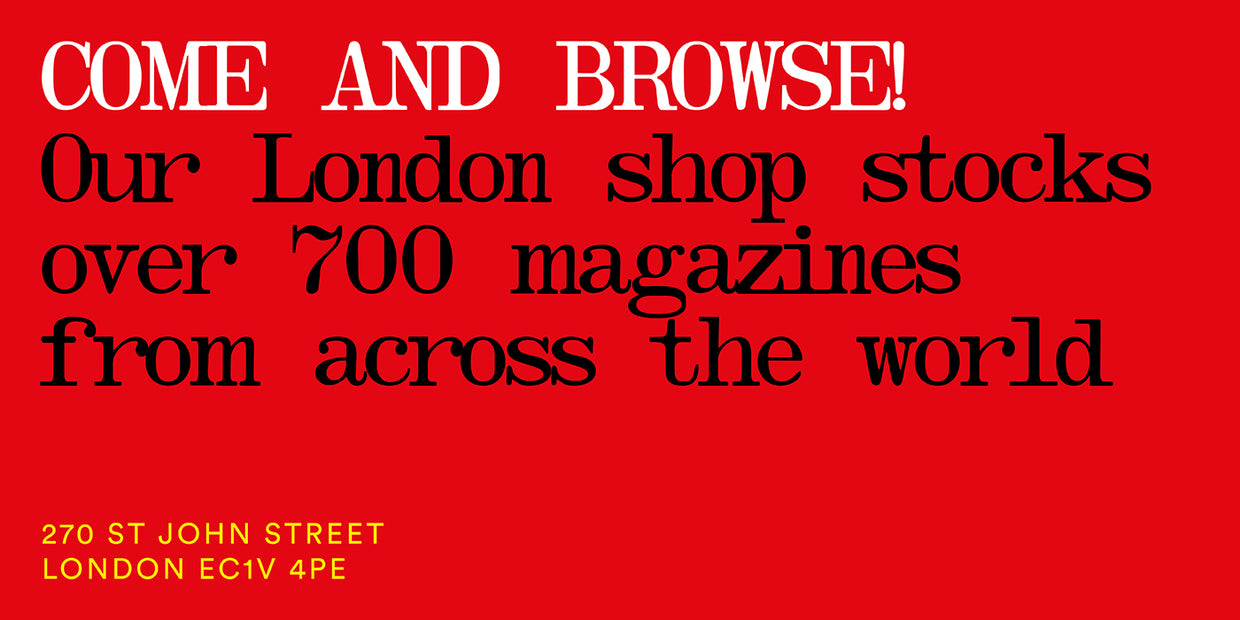
It’s Freezing in LA! #7
Our latest excerpt comes from the seventh issue of It’s Freezing in LA!, the independent magazine about climate change. It illustrates how the subject figures in all areas of life and culture.

The new issue explores environmentalism as Regeneration; the first half looks at climate action through a broad lens, and the second half zooms more tightly into specific areas. Our excerpt is from the latter half; Arielle Domb asks whether indie music can develop a more relevant commentary on the climate crisis.
Editor Martha Dillon explained that the piece grew from a series of reviews and interviews Arielle had written for the magazine’s blog. ‘We wanted to hear more about how she felt musicians were rethinking how to include climate in their music, and loved her suggestion to compare several indie music albums that were and weren’t providing new insights on the environment.’
The recurring graphics in this issue show ice core sections as seen under a microsope. Arielle’s piece is accompanied by illustrations by Oliver MacDonald Oulds.

Arielle writes…
Indie is well-rehearsed in themes of melancholy, loneliness and isolation. Coalescing in the 70s as a reaction to mainstream music, the DIY indie scene epitomised a spirit of independence, set apart from prevailing trends of pop culture. Indie encapsulated an outsider spirit, providing a generation of disaffected kids with a feeling that they had found their people, that they belonged.
But the openness indie promised was undermined by its diversity problem. A largely white male-dominated scene, it wasn’t long before ‘indie’ called to mind groups of dejected white men with guitars. As anthropologist Wendy Fonarow writes in The Guardian: ‘[t]he aesthetics of indie: the longing for a golden age, the melancholy, poverty chic, and the overall values of simplicity, autonomy and austerity, [...] may not be appealing to immigrant or marginalised groups who have already experienced poverty and experience genuine outsiderness as a social class.’
Tame Impala’s indie psych-rock album Slow Rush, released in February 2020, seems to fall into the same patterns. Throughout the album, there’s repeated references to being on the fringes of society, which again, are enshrouded with romance. Being a ‘loner in L.A’ was glamorous; ‘living in squalor’ was ‘heaven’; deprivation equates to hedonism: ‘get[ting] on it, four out of seven’.
Such privilege is palpable in ‘Tomorrow’s Dust’, where climate anxiety dissipates into psychedelic haze. Global warming is ‘endlessly ‘round the corner’; there is ‘Sympathy for the fauna’ and concern for ‘Fragile life in the sauna / In the sea getting warmer’. But when Tame Impala sings that ‘There's no use trying to relate/ To that older soul / And no use trying to debate /That they've got it wrong’, it feels less like a call to push past the mistakes of complacent older generations, and more like an assurance that somehow, everything will be fine: ‘the day will come, and then it will pass’.
Yet while white artists have dominated the indie scene, in recent years a wave of diverse artists have been decolonising indie’s notoriously white stranglehold on melancholy, providing a plethora of new perspectives on global issues like the climate crisis. In 2019, the Los Angeles trio, clipping., released ‘The Deep’, an enchanting Afro-futurist underwater epic, blending themes from mythology to modern slavery. The track explores how first world greed has impacted the globe, depleting resources and leading to ecological devastation. ‘Y'all feed off the bottom’, slams rapper Daveed Diggs, ‘their world came to destroy ours / With cannons, they searched for oil beneath our cities / Their greed and recklessness forced our uprising.’
Also in 2019, Tuareg-Rock band Tinariwen released Amadjar. The album was made on the road from Morocco to Mauritania, with the band’s members unable to return to their home in Northern Mali due to intertwined political and climate issues.[1] Its songs chronicle the plight of displacement and nomadism. Bassist Eyadou Ag Leche explains that ‘Amadjar’ means ‘the foreign traveller’ and this album is about ‘being a stranger in your own land’. Combining undulating rhythms with dry, mournful vocals, the album encapsulates ‘the nostalgia of the old days’, but also the ‘love and the beauty of our desert.’
Yet as bands break the status quo, the inward-facing ‘outsider spirit’ of 80s indie still runs through the genre. Releasing Everything Else Has Gone Wrong in January 2020, English indie rock band, Bombay Bicycle Club, seem driven by a similar mindset. The climate crisis is evoked explicitly in ‘Good Day’, but its effects become even hazier.
Despite a wave of concern – ‘The melting ice caps in my dreams / Made me stop and think about, think about / Time running out’ – the song resolves in inaction. There’s a stoner-esque inertia in lines like – ‘I sit back and watch TV’ and ‘I would quit my job / If I had a job’ – which culminate with the bittersweet ‘I just wanna have a good day’. While perhaps a relatable picture of the climate inertia that permeates the minds of many young people today, it’s a lifestyle that exists far away from the reality of the climate crisis, and the hardships of marginalisation and uprootedness.
Indie’s recent attempts to address the climate crisis are noteworthy, but for it to communicate something productively – it still needs to step out of its teenage sulkiness – its rejection of the world, its esoteric messaging, its retreat into private places, its celebration of hedonistic pleasure – and consider its privilege, its power, and its position in the world. A scene that grew from aspirations of accessibility and inclusion, indie has a responsibility to assess what it has become, and what it is communicating about the state of the world in our time.
Read the entire article in It’s Freezing in LA! #7, available now.


